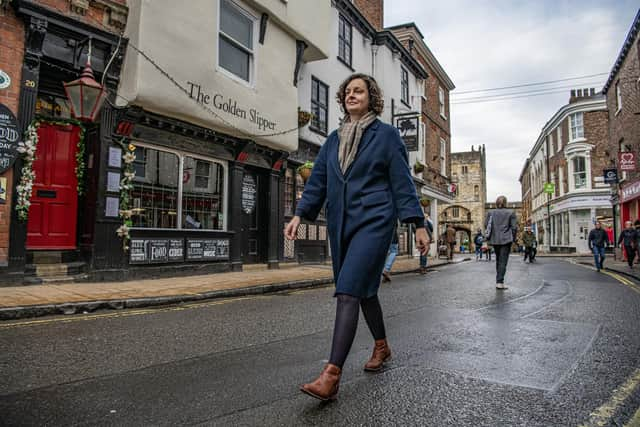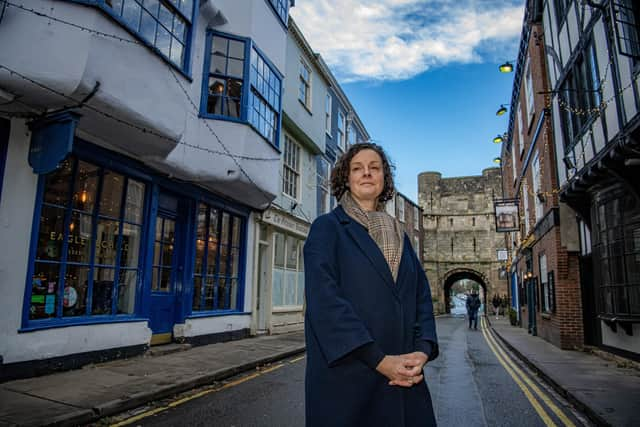Yorkshire pubs: Exploring the science behind what matters more - a pint or where it is poured
Crucially he also highlighted the importance of location, in an essay for the Evening Standard in 1946, citing the proximity of a bus stop as paramount.
Now new research, almost 80 years on, shows how much and how little has changed.
Advertisement
Hide AdAdvertisement
Hide AdA pub's location is still pivotal to its success, the University of York’s own Professor of Pubs Victoria Wells has found, proving make or break when it comes to choosing.


"Pubs are just warm, welcoming places," she said. "Location has always been important, but I thought people would be willing to travel further.
"What was a surprise was that it was so significant."
Prof Wells has co-authored a chapter in the latest edition of The Geography of Beer with colleagues Dr Nadine Waehning, Prof Kathryn Arnold and Prof Ignazio Cabras.
Overall, they found, pub goers tend to favour settings that are close by, or along common routes. But there is a delicate balance - with some preferring a walk so as to avoid disturbances. What's more, they quite like pubs clustered together, for the great British pub crawl.


Advertisement
Hide AdAdvertisement
Hide AdThe findings also highlight the importance of preserving the humble pub, in a sector which contributes more than £20bn a year to the nation's economy.
To save this important part of our heritage, outlined Prof Wells, it's key to understand how and why we use them.
In modern society, and increasingly in rural areas, pubs are now so much more - replacing traditional spaces like village and church halls, hosting food banks and charity events.
"It's somewhere with different social rules, where you can talk to everyone," she said. "There isn't that 'British up-tightness'. For many pubs they really are the heart of the village."
Advertisement
Hide AdAdvertisement
Hide AdBut against this backdrop, she warned, the past few decades have not been kind. Buildings can now be worth more as housing, while costs have skyrocketed.
The challenge has "accelerated" over the last couple of years. Ultimately, the impact of a pub on its community, she added, is intricately tied to its location.
"If we lose them we lose that community function," she said. "It's really sad to see them disappear. I'm very fearful, especially for the next year. We often undervalue pubs, and they can be seen by the Government as standard businesses. They bring so much cultural value, so much history, and community."
Prof Well recently launched the UK’s first online course on pubs, and said that knowing the role location plays could prove an important factor for pubs to consider in their strategy.
Advertisement
Hide AdAdvertisement
Hide Ad"They might be competing with many other pubs close by, or perhaps they are a lone pub in a village or suburb that needs to draw visitors in from other areas," she said.
"Pubs can’t change their location, but they can understand the benefits and disadvantages of different locations and work this in their favour."
It isn't easy, in today's climate, to say 'use it or lose it', she added: "If you can, fantastic. If you can't, email your MP and tell them how important it is to you.
"There's always something we can do even if we can't put our own money behind the bar."
Comment Guidelines
National World encourages reader discussion on our stories. User feedback, insights and back-and-forth exchanges add a rich layer of context to reporting. Please review our Community Guidelines before commenting.